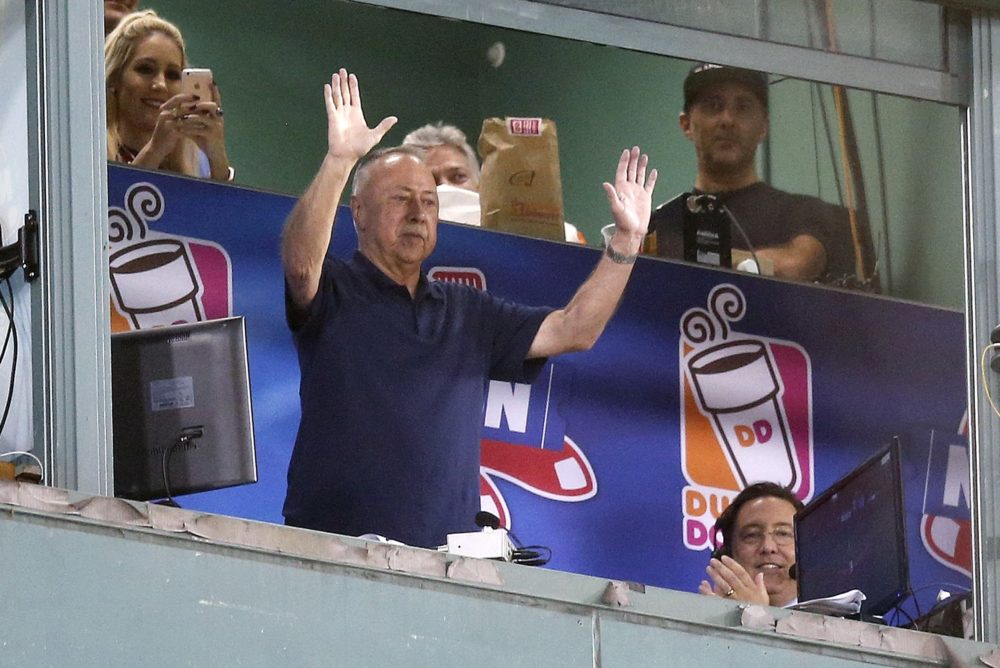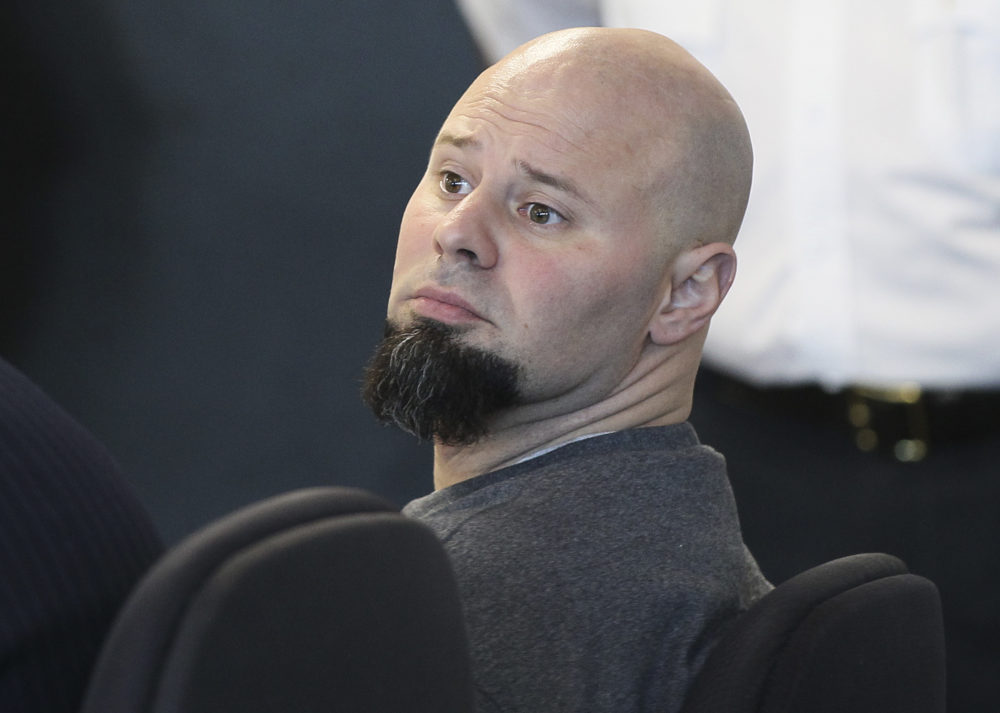Advertisement
In New Book, Jerry Remy Covers Baseball, Depression And His Son's Murder Plea

If you've watched Red Sox broadcasts on NESN over the past three decades, you've likely heard the voice of Jerry Remy and caught some glimpses of him goofing around in the broadcast booth.
Remy played second base for the Sox in the 1970s and '80s, and he's been doing color commentary on the games — and fans in the stands — since 1988.
But he's also faced his share of turmoil. He's battled clinical depression and lung cancer, and six years ago, his son, Jared Remy, murdered a woman. That woman, Jennifer Martel, was Jared's fiancee and the mother of their child.
Jerry Remy covers all of those topics in his new book, "If These Walls Could Talk: Stories from the Boston Red Sox Dugout, Locker Room, and Press Box." He co-authored it with the late Boston Globe sportswriter Nick Cafardo.
We sat down with Remy at Fenway Park Thursday to talk about the book and his life.
Interview Highlights
On how he chose to write about his son Jared:
"I didn't want to make any excuses in that chapter at all. It's shorter than a lot of people maybe think it should have been. But the fact is it's not a story about Jared. It's a story about what he did. And it's a story about no excuses for what he did. ... He committed the crime, he's responsible for it. He pleaded guilty to it and he's spending the rest of his life in prison. I live with that. Every single day of my life — every day that I get up — we think about that, and it's not just once a day.

"And you know, we're fortunate to have two wonderful grandchildren who have turned out very, very well. That's the biggest thing that I'm concerned about is that our grandchildren end up to be productive adults. And then I feel like we've done part of our job.
"There was a lot of things said — a lot of things said about my wife, in particular, that was so off base that it didn't even deserve a response. So I didn't want to get into a thing about us. ... The facts are there. [Jared] did it. He's in prison the rest of his life. That's it. There are no excuses."
On how clinical depression has affected his life:
"I didn't know what I was dealing with. You know, I never experienced panic attacks in my life. And I had one in Cleveland and I thought I was having a heart attack. ... And it got so bad that if I was sitting here with you today and I had a panic attack, I could never look at these seats again or I'd have a panic attack. And those panic attacks brought me into a deep depression. But I got the proper help, and I was very fortunate to have very good people over at Mass. General help me out. And it's not like a magic pill that you take it, the next day you wake up and you feel great again. It takes a long time. But, you know, people who suffer through this, there's a stigma that goes along with it — you know, you can't handle life. It happens to more people than we think. And so you've got to go out and reach out and get help for it. And I hope reading this [book] that people will get help, you know, for when they have these type of problems — because they're curable."
On the Red Sox-Yankees rivalry, which he recalls as "real hatred" during his playing days, and whether it has changed:
"I just think baseball was different back then than it is now. You know, I got here in 1978, where they had had a couple of years of some brutal battles. And there was a genuine dislike between our players — the Red Sox players — toward the Yankees, and the same thing on their side. And there was no communication on the field between any of us, so I thought it was great. It was a real battle. But it's changed. And, you know, the rivalry depends on where you are in the standings, too."
This segment aired on July 26, 2019.

